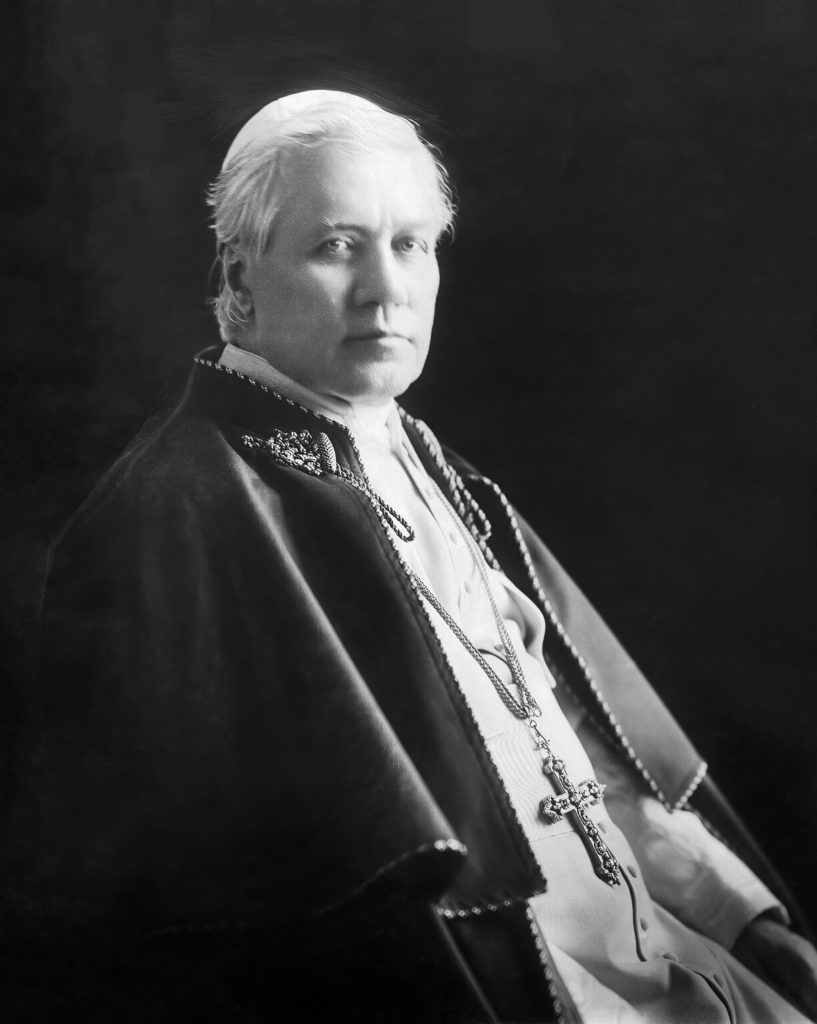Author: Fr. J.B. Lemius, adapted from Pascendi by Pope St. Pius X, public domain
Posted: Month of the Holy Family, 2nd Day, Year of Our Lord 2023, Feast of the Purification of the Blessed Virgin, Our Lady of Good Success, and the Presentation

Here is the topic: The Church, Its Origins, Nature, and Rights
“Q: We come now to the Church. What do the Modernist theologians think of the Church?
A: A wider field for comment is opened when you come to treat of the vagaries devised by the Modernist schools concerning the Church.
Q: What is the Modernist doctrine on the origin of the Church?
A: You must start with the supposition that the Church has its birth in a double need, the need of the individual believer, especially if he has had some original and special experience, to communicate his faith to others, and the need of the mass, when the faith has become common to many, to form itself into a society and to guard, increase, and propagate the common good.
Q: What, then, is the Church?
A: It is the product of the collective conscience, that is to say, of the society of individual consciences which by virtue of the principle of vital permanence, all depend on one first believer, who for Catholics is Christ.
Q: Whence, according to the Modernist theologians, comes the disciplinary, doctrinal, and liturgical authority in the Catholic Church?
A: Ever society needs a directing authority to guide its members toward the common end, to conserve prudently the elements of cohesion which in a religious society are doctrine and worship. Hence the triple authority in the Catholic Church, disciplinary, dogmatic, liturgical.
Q: From what do they gather the nature and duties of authority?
A: The nature of this authority is to be gathered from its origin, and its rights and duties from its nature.
Q: What do the Modernist theologians say of the authority of the Church in past ages?
A: In past times it was a common error that authority came to the Church from without, that is to say directly from God; and it was then rightly held to be autocratic.
Q: What of the authority to-day?
A: This conception has now grown obsolete. For in the same way as the Church is a vital emanation of the collectivity of consciences, so too authority emanates vitally from the Church itself.
Q: Does not the authority of the Church, according to the Modernist theologians, depend on the collective conscience?
A: Authority, therefore, like the Church, has its origin in the religious conscience, and, that being so, is subject to it.
Q: Should the Church disown this dependence, what, according to the Modernists, is the result?
A: Should it disown this dependence it becomes a tyranny.
Q: It is not, then, a duty on the part of the Church to shape herself to democratic forms?
A: We are living in an age when the sense of liberty has reached its fullest development, and when the public conscience has in the civil order introduced popular government. Now there are not two consciences in man, any more than there are two lives. It is for the ecclesiastical authority, therefore, to shape itself to democratic forms, unless it wishes to provoke and foment an intestine conflict in the consciences of mankind.
Q: If the Church does not show herself pliant toward this doctrine of the Modernists, what will be the penalty for the Church and religion?
A: The penalty of refusal is disaster. For it is madness to think that the sentiment of liberty, as it is now spread abroad, can surrender. Were it forcibly confined and held in bonds, terrible would be its outburst, sweeping away at once both Church and religion.
Q: What, finally, is the one great anxiety of the Modernists?
A: Their one great anxiety is, in consequence, to find a way of conciliation between the authority of the Church and the liberty of believers.”
From A Catechism of Modernism by The Rev. J.B. Lemius, O.M.I. founded on the encyclical Pascendi Dominici Gregis (On Modernism) by Pope Pius X TAN Books 1981

